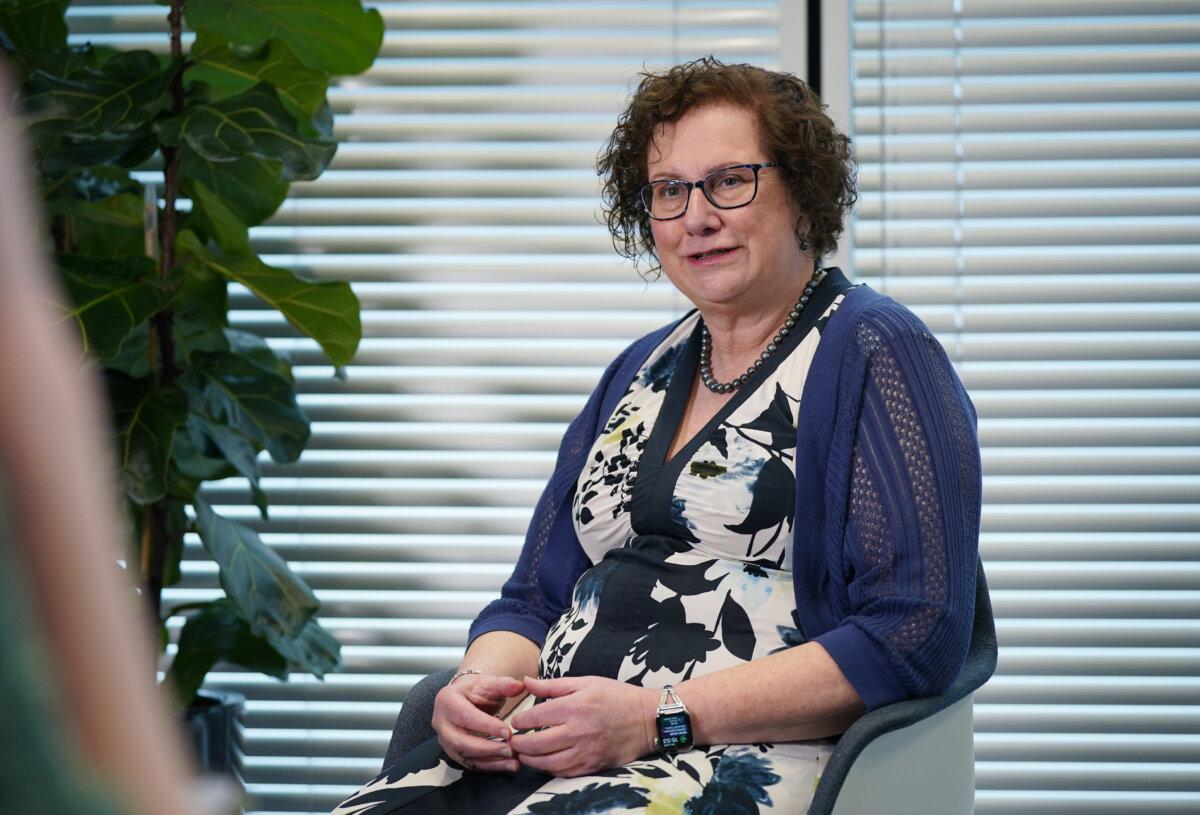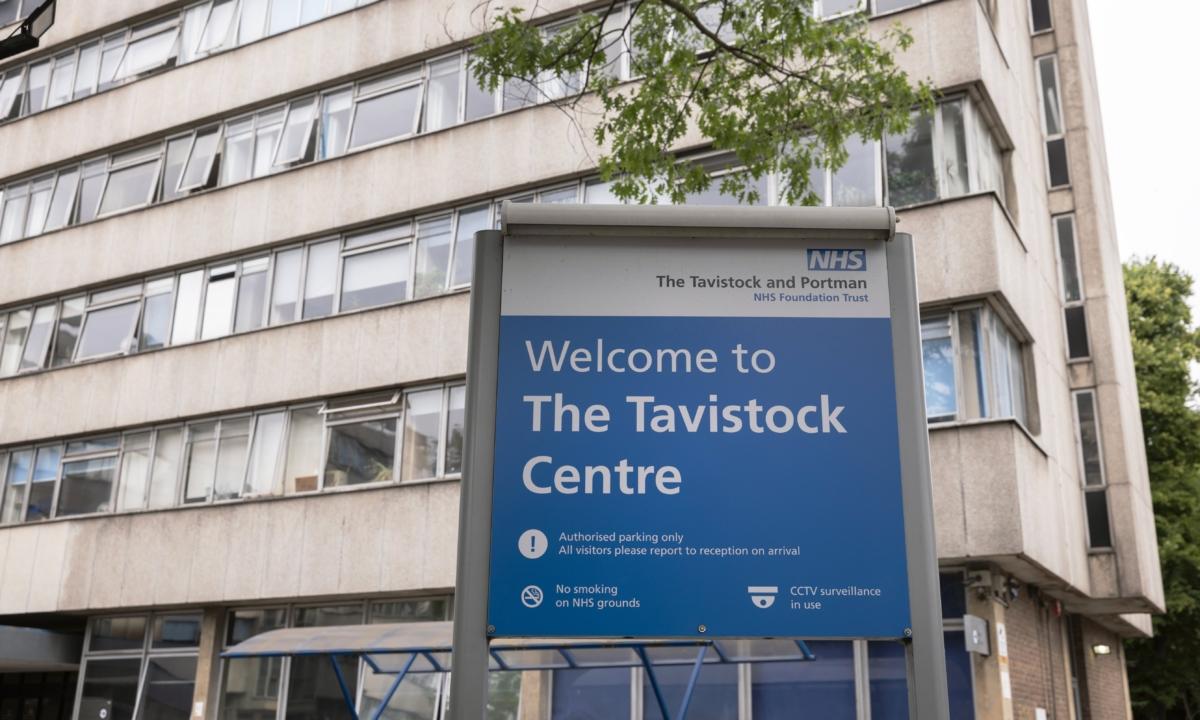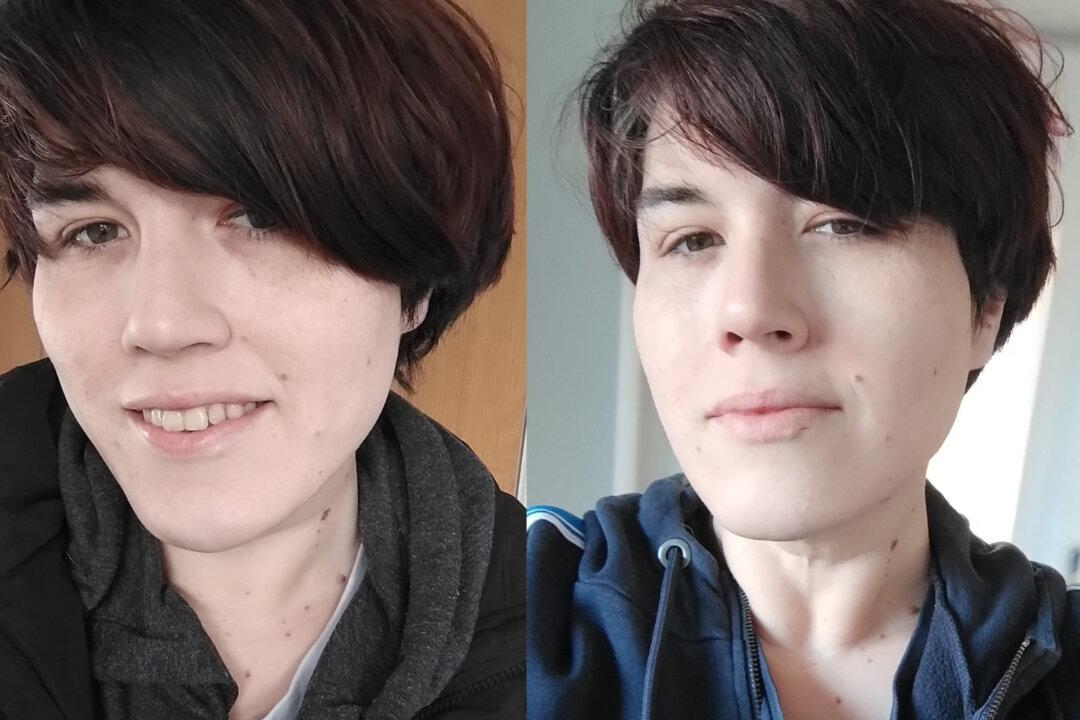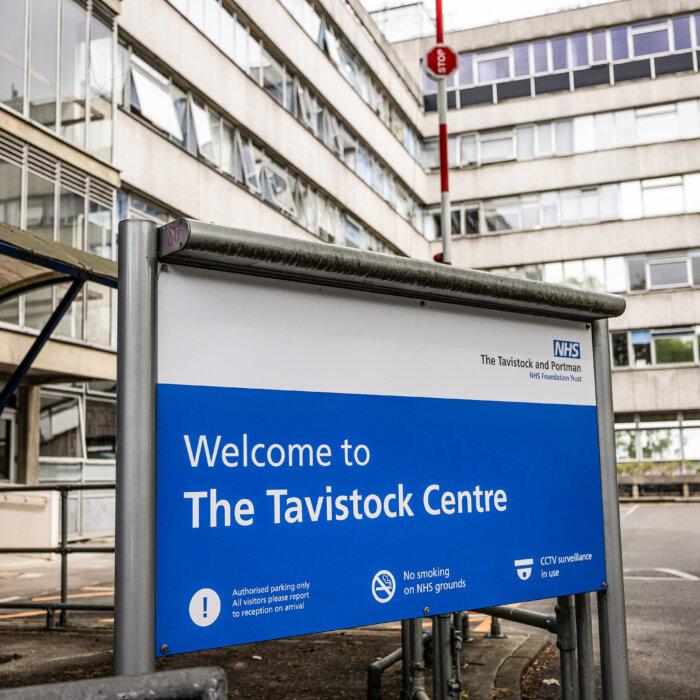A man who “detransitioned” after having surgery in an attempt to live as a woman has said all gender services should be reformed so that vulnerable adults as well as children are given comprehensive psychological assessment and support.
Ritchie Herron is suing the NHS and other agencies involved in his treatment because he said he was diagnosed as “transgender” after just two sessions with a psychologist.
He said the psychologist did not assess him for autism or take account of his mental health problems, or his struggle in coming to terms with being gay.
Mr. Herron spoke to The Epoch Times ahead of the publication of the Cass Review, which gave a damning report on the gender services offered by the NHS to children, finding that too often young people with mental health problems and neurodiversity were not being properly assessed, and their self-declared “identity” was simply being affirmed by health professionals.
The civil servant, now 36, grew up in Newcastle, the son of a miner and with a feeling that he did not fit in with the culture of the area as he became aware of being gay. He said he had no real feeling of being transgender—and this was not something ever mentioned in his school years—but became aware of the concept in his 20s through online groups.
Although not a child when he sought help, various factors combined to make him a vulnerable adult, including his depression and anxiety and online grooming he had experienced. He said the question of when he first felt he was gender dysphoric is complex.
“If you had asked me in transition, at age 26 ... I would have said I had those feelings very, very young.
“But now, because I think there’s a desire to have that retrospective story, you know ... because I had a lot of issues... Like when I was a teenager online, talking to older men and dressing up and stuff and taking photos.
“I always felt alien, always felt difference. That’s quite normal for somebody with autism. And I think in a lot of the cases, a lot of the guys were, you know, you always have this feeling of being unusual.”
OCD, Depression, Anxiety, and Autism Made Him ‘Vulnerable’
He went to see his GP, who was sympathetic and referred him to the northern region gender dysphoria service, run by Cumbria, Northumberland, Tyne and Wear NHS Foundation Trust.While waiting 15 months for his NHS appointment, he obtained private prescriptions for cross-sex hormones—getting himself into debt—and began to try and live as a woman, calling himself Abby. He believes obsessive compulsive disorder (OCD) was a factor in his decision to take testosterone blockers.
“I’ve got very bad OCD. And I believed that testosterone was contaminating my body, it was poisoning my body. And I needed to get that poison stopped,” he said.
He said there was nothing in the way of a proper psychological assessment either on the NHS or in the private clinic, and he was diagnosed “transgender” after just two private appointments. When he saw the NHS psychologist in Newcastle in 2015, the first question he was asked was whether he wanted to progress to full, transitional surgery.
He Cancelled Surgery 3 Times
Mr. Herron had so many doubts about the surgery, he cancelled the procedure three times, but had seven separate diagnoses of “transgenderism” from professionals.After he cancelled his second referral for surgery, he was told if he did not want to proceed, he would be discharged from the NHS gender services, which caused him to panic as he assumed all psychological support would be withdrawn.
He eventually went ahead with the procedure—known as a vaginoplasty, which not only removes the male genitalia but creates a hole intended to mimic a vagina—two days before his 31st birthday in May 2018.
Mr. Herron said as he came round from the haze of anaesthetic and painkillers his first thought was, “Oh God, what have I done?”
He lost 40 percent of his blood, requiring a transfusion, and was in terrible pain as his body tried to heal itself, leading to stenosis, or shrinking, of the urethra, causing a “crushing” sensation, none of which he said he was properly prepared for.
He described the feeling of having been “savaged” by the surgery and likened the pain to “an animal attacking flesh.”
Six years on, the physical problems continue. It takes him 10 minutes to empty his bladder and he still suffers pain and is left with about 5 percent of the sexual pleasure he used to experience.

Age Is a ‘Red Herring’ Argument
He said: “I think the age argument is a red herring—whether someone is old enough to consent at 18 or 21 or 25. If you are vulnerable, you stay vulnerable.”“Autism is so in alignment with gender dysphoria. It’s so important that people realise this. So many of the [people] who transition are autistic.
“When autistics go through puberty, you feel so much more uncomfortable with your own body. I felt so big and clumsy. You don’t understand your own body,” he said, adding that this can easily be confused with being gender dysphoric, once the seed is planted in a vulnerable mind.
Mr. Herron said he would not outright ban the surgery, as those who are really determined to have it will find a way, but he believes far more psychological assessment needs to take place at clinics.
He believes that children spending too much time alone online is fuelling the transgender crisis, and said there should be much stricter control over what young people are exposed to on the internet.
He is calling for a “more scientific approach” to research, and says people need to be made more aware of the adverse effects of puberty blockers and cross-sex hormones, as well as the full horrors of the surgical procedures.
He has used his social media accounts and blog, under the name TullipR, to warn people that the surgery is irreversible and comes with a catalogue of complications and side-effects.
In time, he believes, there will be an avalanche of claims for medical negligence against the NHS and private providers, both for surgery people have come to regret, and for the potential long-term side-effects of cross-sex hormones. Taking these drugs has been linked to osteoporosis for females and to Alzheimer’s for both sexes because the stress hormone, cortisol, floods the brain once the natural hormones are suppressed.
Mr. Herron said: “We need scientific proof and evidence that the harm has been done. ... That’s what I’ve always advocated for. And I’m a big believer in this: It will come out in the wash.”
In a letter to Dr. Hilary Cass, who authored the 400-page report, NHS England officials said a planned review of adult services will be brought forward and now “be undertaken in the context of a broader, systemic review of the operation and delivery of the GDCs [gender dysphoria clinics].”
NHS England said it will provide details in due course, but it is believed it will entail a Cass-style review led by an independent expert.
Dr. David Bell, who blew the whistle six years ago after colleagues raised concerns about the Tavistock Clinic, which provided gender services for children until it was closed last month, said he was surprised by the “complete lack of cooperation of adult services” with Dr. Cass’s report.
The research could have looked at the outcomes for approximately 9,000 young people who have been moved from the children’s to the adult gender dysphoria NHS clinics.
But six of the seven adult clinics declined to support the study, with reasons for not doing so including ethical considerations and concerns about political interference, claiming the resulting “high-profile national report” could be misinterpreted.

6 Out of 7 Adult Clinics Refused to Take Part in Research
In a letter to John Stewart, national director for specialised commissioning at NHS England and NHS Improvement, dated last month, Dr. Cass said that despite his “welcomed efforts to obtain cooperation, most of the NHS gender clinics have refused to take part in this research.”She said the study “follows usual NHS research practice” and was “only novel because of the sensitivity of the subject matter.”
Dr. Cass said it was “hugely disappointing that the NHS gender services have decided not to participate with this research,” adding that it had delayed the report.
Asked about this lack of cooperation as her report was published on Wednesday, she said she was surprised that adult services “weren’t keen to collaborate because I would have expected them to have a professional curiosity about what was happening in terms of long-term outcomes” for young people.
She added, “Certainly if they were confident that their model of care was the right one, they should have been really keen to see that research as much as we were so yes, it is disappointing.”
Dr. Bell, a retired consultant psychiatrist, told the PA news agency: “I was shocked by the finding that the adult service had been asked and refused to cooperate. I didn’t think they would go that far.”
“They seem to be wanting to, instead of being transparent, keeping the curtains shut so that we can’t be allowed to see what happens. And that is extremely worrying.”
NHS England has written to local NHS leaders informing them that a planned review of adult services will now become a “broader, systemic review of the operation and delivery” of gender dysphoria clinics (GDCs).
The letter “also makes clear that NHS England expects full cooperation from the GDCs in the delivery of the data linkage study,” meaning they will be required to participate in research.
Dr. Bell welcomed the overall report, saying he feels vindicated for first reporting concerns raised to him at the Tavistock.
He said: “It shows that all of us who raised these concerns all these years ago, although it’s taken a while, every single concern that we raised has been borne out by this study.
“She has to absolutely frame it in such a way that most reasonable people will be able to take it in as a balanced and rational document,” he said.
“It’s not set out as an expose, that’s not its job. But behind the scenes there is a terrible expose.”







